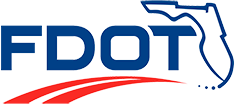Transportation Planning Studies
Guidance & Handbooks
Planning Fundamentals
FDOT District 7 Citizens Transportation Academy. FDOT District Seven developed an online series of six webinar courses covering transportation planning basics that are free and open to the public. Topics include the following:
- Regional Transportation Roles and Responsibilities
- Metropolitan Planning Process
- Introduction to Transportation Project Development
- Introduction to Transit: Transit Modes and How They Work
- How Transportation Projects are Funded
- Congestion Management Strategies
Planning Glossary. The Office of Policy Planning in the Florida Department of transportation has compiled a Transportation Glossary of terms and acronyms used in transportation planning.
Critical Guidance and Handbooks for Planning
Complete Streets Implementation. In September 2014, FDOT adopted the Statewide Complete Streets Policy. FDOT’s Complete Streets Implementation website contains a variety of resources for planners wanting to learn more about how transportation systems can be designed to match the surrounding development context and better serve the needs of roadway users.
Florida’s Future Corridors. Florida's Future Corridors is a cooperative effort between FDOT and statewide, regional and local partners to envision and plan the future of Florida's major statewide transportation corridors over the next 50 years.
Metropolitan Planning Support. The Office of Policy Planning coordinates with Florida's 27 Metropolitan Planning Organizations (MPOs), and federal, state and local partners. The information available at this site is intended to reflect and further that coordination.
MPO Program Management Handbook. The purpose of this Handbook is to provide guidance to Florida Metropolitan Planning Organizations (MPO) and the Florida Department of Transportation (FDOT) staff for carrying out metropolitan transportation planning responsibilities. It presents procedures, policies, and timelines for developing MPO planning and programming products required by Federal and State laws and the related administrative requirements MPOs and FDOT must meet.
FDOT District 5 Multi-Modal Corridor Planning Guidebook. FDOT District 5 has prepared this Planning Guidance to provide direction on how to plan for multi-modal transportation investments. Its focus is to guide the development of all transportation facilities, with the goal of investing in transportation facilities that work well for all users, are affordable, and that support community planning, economic development and mobility goals.
Multimodal Transportation Best Practices and Model Element. This report provides guidance in developing a multimodal transportation element of a local government comprehensive plan with emphasis placed on ensuring a multimodal transportation system appropriate to the size and character of the community, providing for public transportation as feasible, improving accessibility and connectivity between modes, and coordination with land use and plans of other transportation agencies and modal providers.
Non-Metropolitan Planning Support. The Office of Policy Planning coordinates its work with other partners including metropolitan planning organizations and local governments. The products listed on this page are the result of OPP's coordination with rural agencies and local governments.
Public Involvement Handbook. Provides requirements for federal and state legislation regarding public involvement. It also provides a summary of the Department’s policies, procedures, and manuals that identify requirements and guidelines for public involvement in each phase of the project development process.
Systems Implementation Handbooks and Manuals. The Systems Implementation Office is responsible for the development and maintenance of rules, standards, and procedures; for providing technical guidance, training, and technical assistance; and for providing quality assurance in the following statewide transportation program areas: Access Management, Interchange Access Request, Quality/Level of Service, Site Impact Analysis, Corridor Development, Trip Generation, and Road Designation.

